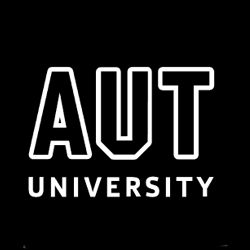
Towards Retention: The Role of Assessment, Motivation and Prior Knowledge in Learner Completion
Status
Completed: 1 January 2009
Project Details
A project completed in 2009, to investigate how assessment processes affect student motivation and course completion in a workplace-based learning course. A collaboration of Learning State, Auckland University of Technology and Statistics New Zealand.
Aims:
The main aims of the project were to:
- investigate how competency-based assessment can be improved to better meet the needs of learners in the workplace
- investigate the relationship between the complexity of assessment questions and the time taken to complete unit standards
- carry out an analysis of other key factors related to learner completion.
Methodology:
A mixed method approach, both qualitative and quantitative, was used, involving:
- a literature review
- interviews based on structured questionnaires were carried out with learners, managers and assessors.
Team
Neil Bechervaise
Project Leader
Learning StateSharleen Forbes
Statistics New ZealandKaren Moses
Learning StateNathaniel Pihama
Statistics New ZealandKimberly Cullen
Statistics New Zealand
Murray Black
Auckland University of Technology (AUT)Status
Funding
$6,400.00 (excl GST)
Key Findings
The key findings from the project were:
- The majority of learners completed the whole certificate including the final elective unit in the 18-month timeframe and 85% completed all four of the compulsory statistical unit standards within this timeframe. At present the duration of the Training Agreement with Learning State for the certificate is 12 months but two extensions to this were needed.
- Changing roles within the same government agency or moving to a new agency lead to withdrawing from the certificate because of competing priorities.
- Learners seemed to have been given very little support from their managers during the course of the qualification.
- The time taken by learners in this certificate to complete units (from the date the assessment questions were sent out) was highly variable both for individuals (ranging from 4 to 240 days), and across the four units (median times ranging from 33.5 to 84 days). The sample size is very small so conclusions remain highly tentative but the time taken to completion does seem to be related to the candidate’s level of motivation.
Key Recommendations
The key recommendations from the project were:
Learner support | In qualifications such as this, where the material is directly related to the workplace activities of learners, managers should be informed of the amount of support learners require (both in terms of time and encouragement).
Time to complete | Carry out further monitoring of the actual time taken by learners to complete the qualification to ensure that a 12-month timeframe is feasible for learners.
Manager surveys | When manager surveys are undertaken these should be at a sufficient distance from the completion of courses so that the effect in the workplace of the learning can be fully evaluated.
Piloting or evaluating qualifications | The value of piloting or evaluating qualifications after being run one or two times is clearly demonstrated in this study. Not only was the order of the unit standards changed to meet learners needs but also the assessment questions themselves. In addition, gaps analyses were introduced for new learners and pre-courses or learning support for those that required it.
New umbrella unit standard | Further work is required to introduce a new umbrella unit standard that will be truly workplace-based, using a research or statistical report done by the learner within their organisation.